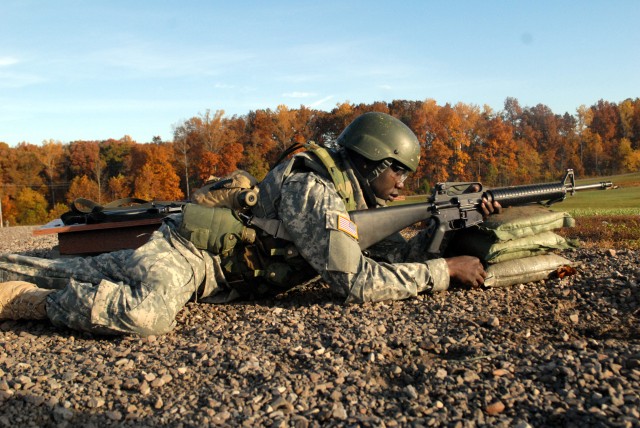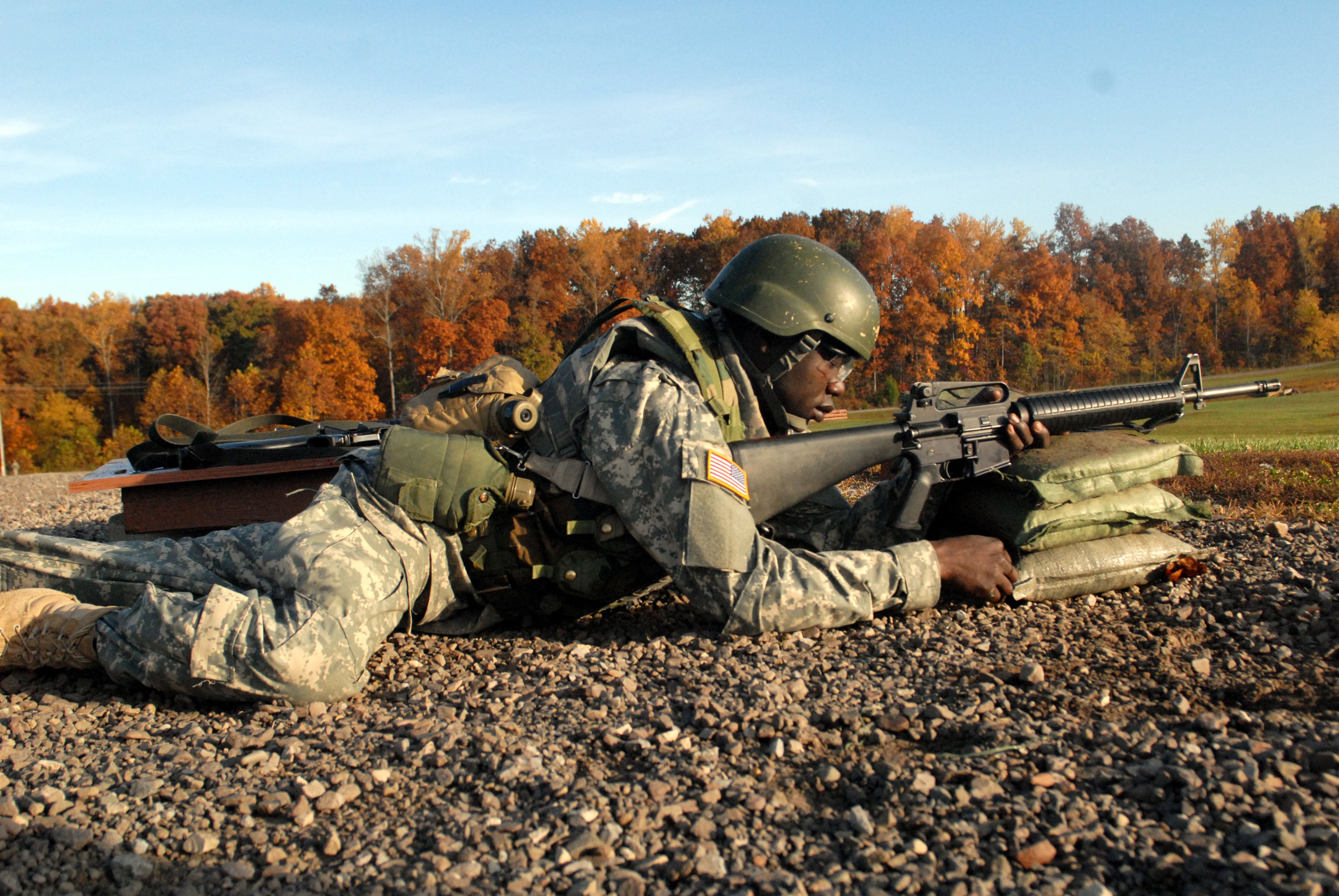FORT KNOX, Ky. - When Americans reflect on their childhoods, many likely remember tranquil times.
But for Sudan native Pvt. Daniel Monibe, of Company E, 2nd Battalion, 46th Infantry Regiment, peace and serenity were a luxury.
Monibe was born into a region in eastern Africa to which peace was a seldom-experienced luxury.
According to foreignaffairs.com, the most recent round of fighting began in 1983 after then-President Ja'far Muhammad Numayri revoked the autonomy that had been granted to the country's south 11 years before and imposed Islamic law (the shari'a) throughout the land. Those steps were the final insult to the predominantly non-Muslim, non-Arab population of southern Sudan.
Monibe was born Aug. 9 that year in Mugali, a village near Nimule, which is on the border of Sudan and Uganda.
Monibe said that according to his parents, he wasn't born in a hospital, and once war broke out in southern Sudan, his parents moved the family to a refugee camp in Uganda when he was 2 years old.
He doesn't remember his early childhood in southern Sudan, but he recalls the early days in the refugee camp.
"I remember waking up in the morning, going to school and playing, and going back home," said Monibe. "The school system was primary (grades) one through seven. After seven you go to a school sponsored by the U.N."
When Monibe was 4 he went to live with his grandmother because his mother went to stay with his father.
"Mom went with Dad and I haven't seen Mom since," he said.
Although life in the camp was a little better than living in war-torn southern Sudan, Monibe said receiving quality medical care was always a problem for those in the camp.
If someone was sick, he or she had to line up at the dispensary. Monibe added that a person could wait in line all day without being seen by a doctor.
"I can remember eating once a day in the refugee camps and being in line for the dispensary the whole day for treatment, and not getting treatment, and having to do the same thing over again in the morning so I (could) get treated," Monibe said.
Having to live in a place that didn't offer quality medical care motivated Monibe to become a doctor. He still dreamed of becoming a doctor when he moved to the U.S.
He believed that his dream would come true when his uncle moved to the United States in 1998.
When Monibe was 16, he found out that his father had died during the war and his uncle had to move to the United States because of the threat of retaliation from Sudanese rebels.
"When your family is involved with the government, they target your family," explained Monibe. "My uncle didn't feel safe and he applied for political asylum."
After being granted asylum, Monibe's uncle moved to Texas and sent money back to his family members who remained in the Ugandan refugee camp.
After living in the states for a few years, his uncle wanted the family to move to the U.S. Monibe said the family filled out the required paperwork and was set to join his uncle.
"We did our interview and medical (screening)," said Monibe. "We were told that our flight was Sept. 16. Then Sept. 11, happens. Two flights left Sept. 10, and then they stopped flights. We were put on hold for a year by the International Organization for Migration."
It would take three years before the family received another flight date.
"My uncle called in the middle of the night and said, 'Your flight is in three days.'"
Monibe notified his cousins and 90-year-old grandmother that they were finally going to join his uncle.
Monibe was excited about joining his uncle because he believed that he would finally have the opportunity to go to college.
He said that during the first three months representatives from Catholic charities took the family to the Social Security Administration, assisted the family with finding an apartment, provided food and vaccinations, made sure the family had completed its paperwork, and assisted the family members with obtaining employment.
"Once you find a job, you don't get any help," he said.
Monibe found out that in the U.S., what is considered "woman's work" in his country was different here.
"They took us to look for jobs and we went to a baker," he recalled. "I asked what was I going to do in a bakery. (In my country) men are not taught to cook."
After explaining that he would find a job on his own, Monibe began working at Blockbuster. Laid off after three month, he found a job at another local gas station.
After a year, the urge to attend college returned and Monibe began to inquire about classes. He learned that he would be required to take English as a Second Language.
After attending college for two years, Monibe decided to major in pre-medicine. He quickly learned that the cost of attending medical school at Baylor was more than $352,000.
He didn't want to attend school on student loans because after calculating the interest, he found it would cost him more $500,000.
His cousin had joined the Army four years prior, so Monibe believed joining would provide him with a chance to earn and save money for medical school.
"I joined the Army because of what the U.S. has done for me and provided me a safe home," Monibe said. "I don't have to worry (about) who is coming to pull me out of my house at night."
Since joining the Army he has learned much about Americans and how his views sometimes differ from those of his fellow trainees.
For example, Monibe said that he is given a large amount of food to eat during the day. When he lived in the refugee camp, he said that he trained his body for one meal a day because food was scarce. He continued to use that technique when he moved to Texas.
He notices that his fellow Soldiers sometimes waste food, and that is often unsettling to him.
"In the camp we wake up in the morning and all you have is porridge," Monibe said. "You get to eat again around 3 p.m. If you are hungry, you can't do anything.
"The food we throw away here would feed a lot of people (in the camp). I ask for what I need," explained Monibe. "I tell people if you don't need the food, don't get it."
Although Monibe has taken a detour in his plans for medical school, he will work as a 68D, operating room specialist, once he completes basic combat and advanced individual training.
Monibe said he is a firm believer in working hard to achieve a dream.
"If you keep your focus you can get what you want," said Monibe. "I look at what people take for granted because they haven't seen the other part of life." A-A A(R)


Social Sharing